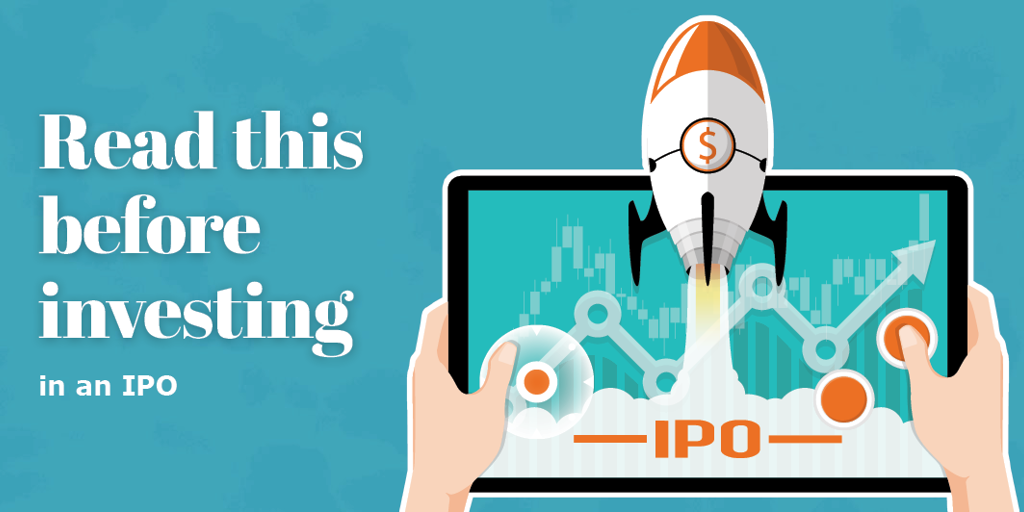


Read this before investing in an IPO
With big-name private companies like Airbnb Inc. and DoorDash Inc. recently announcing plans to go public, many investors may be chomping at the bit to purchase the new stock.
While such investments have the potential to deliver excellent returns, it’s important to understand how the IPO process works, along with the associated risks, prior to investing.
An initial public offering (IPO) is the process through which a company issues shares of its stock to the general public, effectively making each shareholder a partner or owner in the business. An IPO is a significant milestone in a company’s growth; going public gives companies the ability to raise additional capital directly from the investing public. Generally, the first step in the process is to employ the assistance of an investment bank, often traditional Wall Street firms such as Goldman Sachs or Merrill. The investment bank helps the company establish various details of the IPO, such as number of shares and share price — all of which are detailed in the offering document called a prospectus. A prospectus includes the types of securities that will be offered, the amount of funding the company hopes to secure and the approximate price range per share.
Generally, the first step in the process is to employ the assistance of an investment bank, often traditional Wall Street firms such as Goldman Sachs or Merrill. The investment bank helps the company establish various details of the IPO, such as number of shares and share price — all of which are detailed in the offering document called a prospectus. A prospectus includes the types of securities that will be offered, the amount of funding the company hopes to secure and the approximate price range per share.
Companies leaping from private to public markets must file a prospectus with the Securities and Exchange Commission (SEC), so potential investors are fully informed prior to investment. After the SEC reviews the prospectus, the investment bank prepares the deal that results in the initial public offering of shares to the public.
Acting as a facilitator, the investment bank often develops a marketing plan to maximize interest in the newly issued shares. Typically, the research arm of the investment bank will write a research report highlighting the finances of the company and the attractiveness of the shares. The investment bank then employs a selling group to market the issuing company’s newly minted shares to potential investors. This selling group consists of the retail brokerage arm of their operation. Large institutional investors are typically offered shares before individuals. Usually, individual investors must wait to purchase the shares until the large institution filters them to a secondary market.
Setting the IPO price is a tricky process. The investment bank must price the IPO shares high enough to get their investment banking client (the issuing company) maximum value, but low enough that the stock has room to climb after issuance, so the investor sees a fair return. Investors will only invest in the IPO if they believe there is a sufficient upside. Many investors expect to see large short-term returns from IPO shares. But a large run-up in the stock price immediately after the IPO is a sign of a poor pricing strategy, and an indication that the issuing company did not receive full value for their newly minted shares. For this reason, many deals include a “follow-on” offering where additional shares can be offered if the demand for the IPO shares is very strong.
A great way for companies to secure funding, IPOs also provide a credibility boost and may be the only way for founders and early employees to unlock the value of their personal shares. For decades, United Parcel Service (UPS) was an employee-owned company with access to plenty of capital. However, during UPS’s IPO, their CEO stated the primary reason they were going public was to provide a fair and efficient method for employees to convert their shares to cash.
But there are drawbacks associated with issuing stock to the public; SEC disclosure and transparency requirements are much more restrictive for public companies.
Additionally, corporate founders may have less control over their operations because new shareholders with voting rights will emerge. Public companies may receive pressure regarding the makeup of the board of directors, with strategy and policy decisions becoming more difficult than when a company was private.
It should also be noted that the timing of an IPO is very calculated. Typically, a company will choose to go public when it believes it will receive maximum value for its shares. That does not always equate to the maximum value for the new shareholders. As always, it’s critical that you do your homework before you invest. Don’t get caught up in the hype associated with a big company going public.
Warren Hurt serves as vice president, chief investment officer at F&M Trust
Recent Articles
Join our e-newsletter
Sign up for our e-newsletter to get new content each month.






















